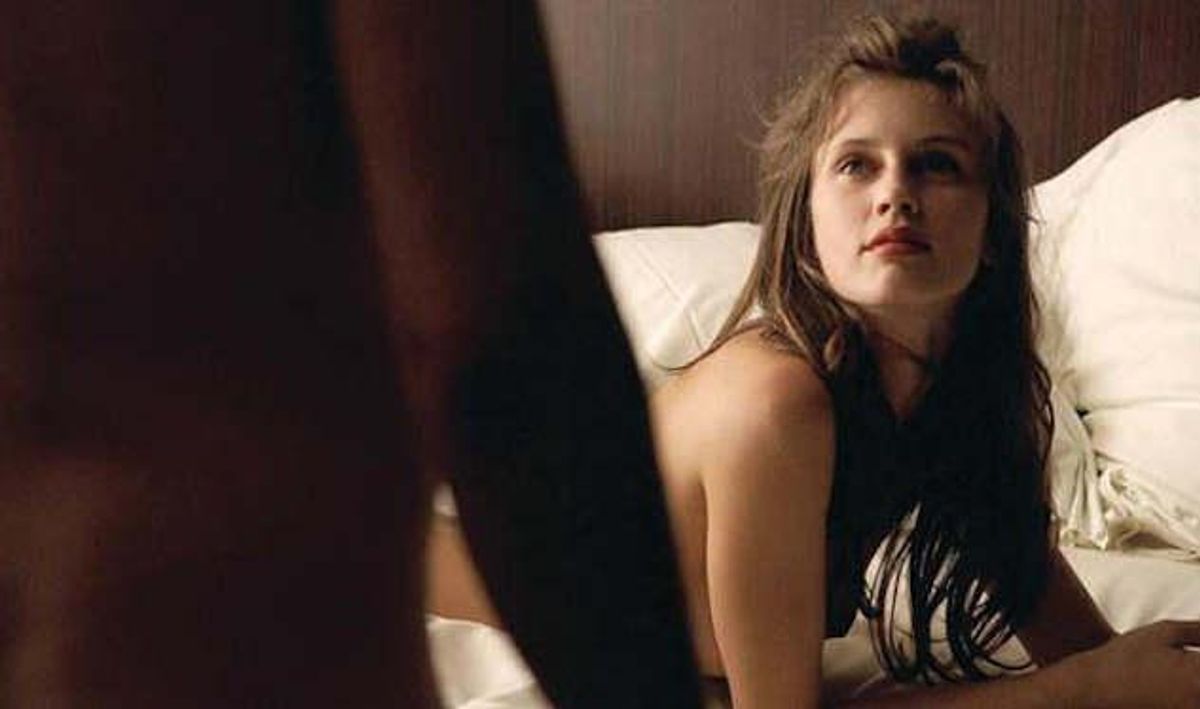
With Young and Beautiful, François Ozon bridges gay and straight—an instant classic
April 23 2014 1:25 PM EST
May 01 2018 11:46 PM EST
By continuing to use our site, you agree to our Private Policy and Terms of Use.

After 17-year-old Isabelle (Marine Vacth) loses her virginity to a boy met during her family's summer retreat, she rushes home, smiles to her younger brother and exhales, "Done!" Formality out of the way, Isabelle starts discovering her feelings through her body. Her promiscuous habits--making web hookups as a teenage prostitute--become the inquiry of French director Francois Ozon's new film Young and Beautiful, an instant bad-girl classic. It's about that initial surge of sexual activity that changes a person's sense of self in relation to the world.
Gay people habitually ponder the discovery because it isn't clearly laid out in prevailing social customs. This is also true for most girls who are similarly subject to society's rules of behavior and judgment. These new beginnings, and the way Isabelle tests them, make YYoung and Beautiful a compulsive and suspenseful examination of a universal secret--the private, mysterious sexual impulse.
Isabelle's sassy disclosure is also a trust. She shares a confidence with her brother Victor (Fantin Ravat), a wide-eyed, impish prepubescent cherub who may or may not be gay. Observing Isabelle's pre-date cosmetics ritual, Victor approves "You look like a whore." It's both envy and prediction.
To viewers familiar with Ozon's work (Under the Sand, 8 Women, Time to Leave, Ricky, In the House), Victor is, unmistakably, Ozon's surrogate. The cupid-sibling represents Ozon's unique perspective on sex and droll, intense obsession--an insight too rich and thrilling to be limited to gender or strict identity politics. Original French New Wave directors Jean-Luc Godard and Agnes Varda might have reported Isabelle's adventures in a semi-documentary manner but Ozon pretends no such objectivity. He has mastered expressive 3/4 profile shots that analyze Isabelle's thinking just as her Bresson-simple masturbation conveys her loneliness. Ozon's surreal style combines female empathy and gay consciousness--a breakthrough.
Vacth makes a fetching camera subject whether pouting, in repose or on top of a client as her eyes go Lauren Hutton-whorey. During Isabelle's deflowering, she fades out and, referencing Ozon's voyeuristic opening shot, watches herself in vivid details: on the beach, male ass humping, female knees spread and open. This double consciousness extends Catherine Breillat's shocking scrutinizes of female sexuality, bests Benoit Jacquot's skirt-chasing mini-epics and exposes even the best parts of Lars Von Trier's Nymphomiac as crude and obvious.
Ozon explores the phenomenon of sexual curiosity through poetic allusions. Isabelle's intellect gets enflamed by the corrupt text of Laclos's Dangerous Liaisons; she walks through her home at night observing the amorous tension of different rooms; in a high school montage, diverse students respond to Rimbaud's "No One's Serious at 17"; and a series of pop songs brazen Isabelle's identify ("I am no longer the little girl you once knew," chants Francoise Hardy, the emblematic 1960s Parisian girl--and Vacth is her 21st-century descendant).
At age 47, Ozon is still a prodigy. Young and Beautiful revisits past themes and mentors, bridging gay with straight, showing resonant storytelling substance--as with the physical resemblance of Isabelle and her mother (Geraldine Pailhasa) and the generational contrast with a client's wife (Charlotte Rampling). Some of this might be redundant but it's always fascinating. Even when bridging youth and experience, troubled sexuality with audacious possibilities of empathy, Ozon remains provocative.
A gay male version of Isabelle's story might be more than our p.c. world can take--certainly no one has yet dared it since Lionel Baier's great Garcon Stupide. But Ozon's humanism makes that unnecessary. He's Cupid/Eros, who aims his arrow and pierces.